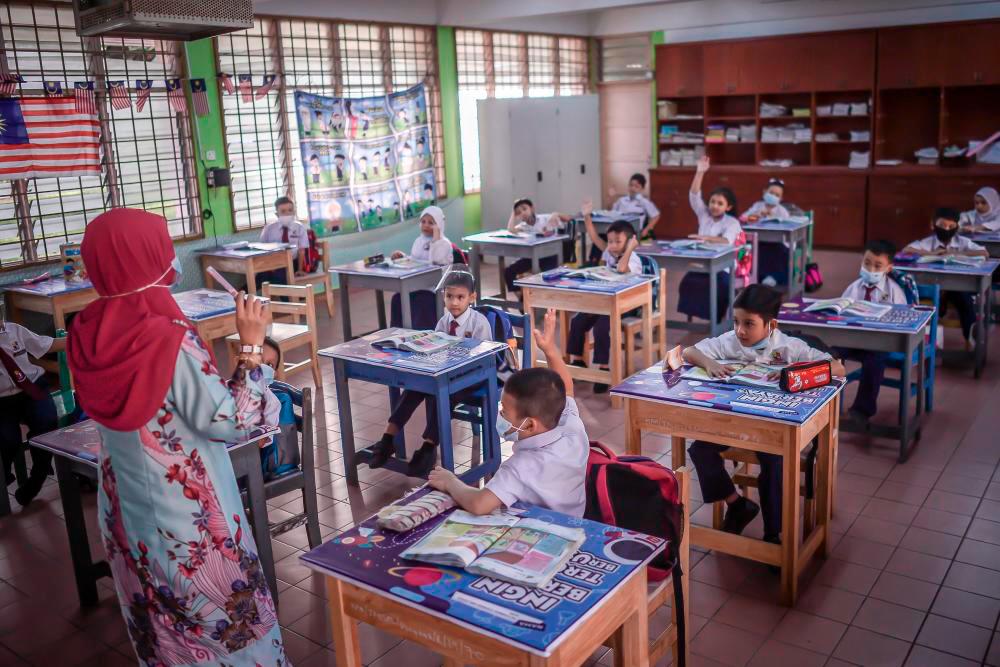THE Education Ministry (MOE) recently reported that nearly 28% of the 448,113 Standard One pupils for the 2024/2025 academic session have not yet mastered reading, writing and counting (3M).
The ministry’s director-general Azman Adnan said the 122,062 pupils have been identified for the ministry’s Literacy and Numeracy Intervention Programme through early screening conducted by teachers in July.
This is a shocking and disturbing revelation, as the real question now is why this is happening even after one year of mainstream learning.
How many thousands or even millions of ringgits have gone to the country’s education system that had ultimately failed to teach students literacy and numeracy, which would then go on to affect the rest of the students’ primary and secondary education?
That said, we must salute the MOE for being transparent in divulging the studies conducted and attempts that were being made in the form of interventions.
There are several reasons why pupils may lack literacy and numeracy skills in Standard One. These challenges can arise from a combination of individual, environmental, and systemic factors.
The laying of the foundation for future learning lies in the initial motivation and confidence they receive and cultivate in standard one.
The root causes
The lack of pre-school education: Many children may not have attended kindergarten or pre-school, which typically introduces basic literacy and numeracy concepts. Without this early exposure, they may struggle to keep up with the curriculum in Standard One.
If parents or caregivers do not read to children regularly or have limited reading and/or writing skills, children may start school with weak language skills.
Similarly, children may not have been exposed to numbers or simple math concepts in their everyday environment (counting objects, recognising shapes, etc.).

Socioeconomic factors and poverty of pupils from low-income families may result in the lack of access to books, educational resources, or a conducive environment for learning at home.
Their parents might also be unable to afford early childhood education, which can delay the development of literacy and numeracy skills.
Thus, in families where parents or caregivers have limited education, they may not be able to support their child’s literacy and numeracy development at home.
The language barriers between home language vs. school language is another cause for concern. For children who speak a different language at home, the transition to learning in the school’s official language (which may be different from their native language) can be challenging.
This language barrier can delay their progress in reading, writing, and math. This will lead to children with limited vocabulary and language skills due to lack of exposure at home may struggle with understanding instructions, reading comprehension, and math/word problems.
Meanwhile, some children may have undiagnosed learning disabilities such as dyslexia, which makes reading and writing difficult.
Similarly, some children may have dyscalculia, which affects their ability to understand numbers and math concepts.
Attention Deficit Disorders or ADHD is another condition which can impact a child’s ability to focus and follow through with literacy or numeracy tasks.
Large class sizes in overcrowded classrooms also becomes difficult for teachers to give individual attention to each child. Struggling students may not get the support they need to build their literacy and numeracy skills.
When parents or caregivers are not actively involved in their child’s education, the child may lack the support system necessary to reinforce learning outside the classroom.
The emotional and social factors which lead to a lack of confidence can also make pupils feel insecure about their abilities, may avoid participating in reading, writing, or math activities. They may develop a fear of failure, leading to a lack of practice and skill development.
In some cases, children may avoid participating in class or trying new things due to the fear of being judged by their peers. Bullying can further lower their self-esteem and motivation.
The curriculum design which are too rigid or too advanced in schools may be too advanced or not suited to the developmental stage of young learners, causing them to struggle with grasping basic concepts.
If the pace of learning is too fast, children may not have enough time to fully understand fundamental literacy and numeracy concepts before moving on to more advanced topics. – Sept 10, 2024
Main image: theSun









